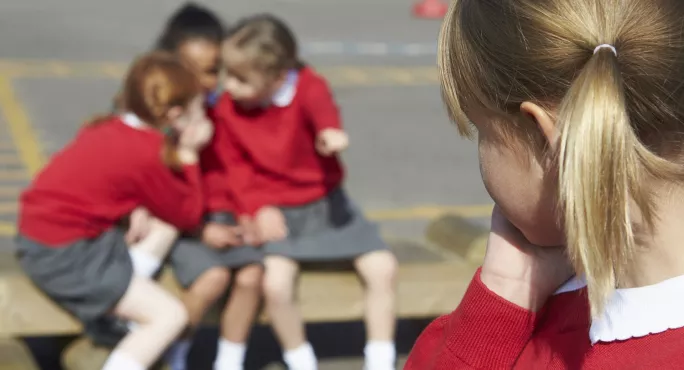“Mum, have you got Chrome virus?” My 10-year-old looks up from the iPad and across the living room to me on my laptop.
“No, I use Safari on my Mac. Why?” We both stare at each other, confused, and the penny drops.
“Oh, coronavirus? No, sweetheart, I’ve had norovirus, which is a completely different thing and I am much better now.”
Coronavirus and schools: Live updates
Coronavirus: 5 lessons from a school in lockdown
Opinion: If we stop teaching, society will collapse
Geography being my son’s favourite pastime, he’s in the process of memorising locations, song choice and entrants for the 2020 Eurovision Song Contest. Reassured, he goes back to that.
Anxiety is catching, though. Social media, newspaper headlines, 24-hour news, conversations everywhere - coronavirus is becoming impossible to avoid. Children hear adult fears and they share them, with big ears and even bigger imaginations.
For younger children, with little concept of time and place, it can be overwhelming - and tiring for teaching staff when every cough in a classroom is followed by mentions of coronavirus, varying from, “If you get it, then you’ll cough a bit”, to “If you get it, you’ll die immediately!”
And we, as parents, aren’t really helping, whether we’re meeting children at the school gates with hand sanitiser or openly discussing CIA plots and conspiracy theories straight out of a Dan Brown novel. One mum was heard asking another in the playground, “Have you done any coronavirus shopping? No? You’re brave.”
Viral videos on social media of adults panic-buying toilet paper, soap and hand sanitiser this week were soon counteracted with images of children licking things - from handrails at a cinema to glass partitions in a sports arena - and tales of young people boosting their immune systems in creative ways. One mum stocking up in her local Lidl despaired at her child sucking on the trolley handle.
Children can demonstrate remarkable resilience in a crisis. A babysitter heard a young child playing with dinosaurs, hugging them all close, and saying, “We’ve all got to cuddle together because of the coronavirus.” A seven-year-old girl declared that if the virus is scared of children, she was going to save everyone. Two others were overheard debating the death rate of the Marvel films’ Thanos versus coronavirus. (Coronathos - coming soon to a cinema near you.)
My eight-year-old nephew’s main concern is that the government will wait until the Easter holidays to shut the schools and he won’t get his full two weeks off school in isolation. When children were isolated recently in China, the schools set up a digital learning app, but children soon figured out that by manipulating the star system on the App Store, they could try to get the app removed by Apple. Meanwhile, in the US, one enterprising little girl has been selling personalised face masks at 20 cents (15p) each.
Teachers are reporting a new playground craze of “Coronavirus Tag”, a combination of the old classics Tag and Stick in the Mud. One parent, having asked their child what it entailed, was told “You go and stand in a different part of the playground with no human rights for the rest of the day.”
It’s a reminder of the disputed history of Ring a Ring o’ Roses being about the plague: children have been combining the macabre with play throughout history, and the way they process their anxiety and fears hasn’t changed in hundreds of years.
Maybe there’s a lesson for us all there.
Jane Somers is a social studies student and parent based in Jedburgh, in the Scottish Borders. She previously worked in press, marketing and education in the Scottish arts scene
